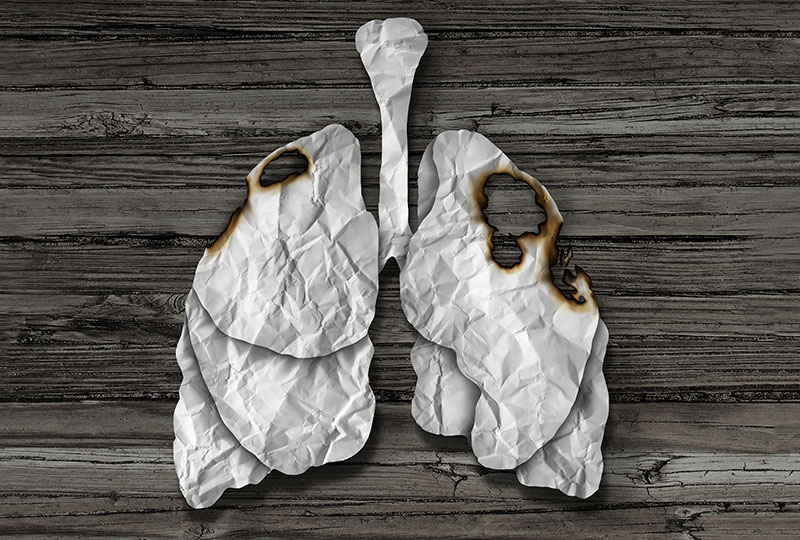We answer the top five questions about this deadly disease.
In the United States, lung cancer is the leading cause of cancer death and the second most common cancer among both men and women, according to the U.S. Centers for Disease Control and Prevention. We sat down with an expert at the Vanderbilt-Ingram Cancer Center to find you the most important lung cancer facts.
1. I have never smoked. Am I still at risk?
“Some people who have never smoked get lung cancer,” says Michael N. Neuss, M.D., chief medical officer, professor of medicine and medical oncologist.
However, 80 percent of lung cancer cases in women and 90 percent in men occur in smokers, he adds.
2. I’ve smoked most of my life. If I quit now, will it even matter?
“Though the risk of getting lung cancer does not fall to levels of non-smokers, even over long periods of time, quitting does lower the risk of heart disease and cancers other than lung cancer,” Neuss says.
After 10 years, the lung cancer risk is half that of someone who continues to smoke, he adds.
3. Aside from smoking, what other factors can cause lung cancer?
The inhalation of toxic substances other than tobacco smoke can contribute to the risk of lung cancer, Neuss says. These include radioactive substances such as radon and uranium, asbestos and fumes from smelters and blast furnaces in foundries.
4. What symptoms might mean problems in the lungs?
“Symptoms of lung cancer include, but are not limited to: weight loss, shortness of breath, persisting cough, any coughing up of blood and chest pain,” Neuss explains. “Any of these symptoms should be discussed with a doctor or nurse.”
5. Do I need to get screened for lung cancer?
People ages 55 to 80 who have smoked at least 30 pack years, and who have not discontinued smoking more than 15 years ago are candidates for screening, Dr. Neuss says.
A pack year (defined by the CDC) is smoking one pack of cigarettes per day for one year.
Those who get screened need to be committed to adequate follow up in the event of abnormal screening results, Neuss adds.
And of course, people with symptoms of lung disease need to discuss their circumstances with a doctor, nurse, or other health practitioner.
We know kicking a smoking habit isn’t easy. That’s why we’ve compiled a ton of resources about winning strategies to help you quit.

